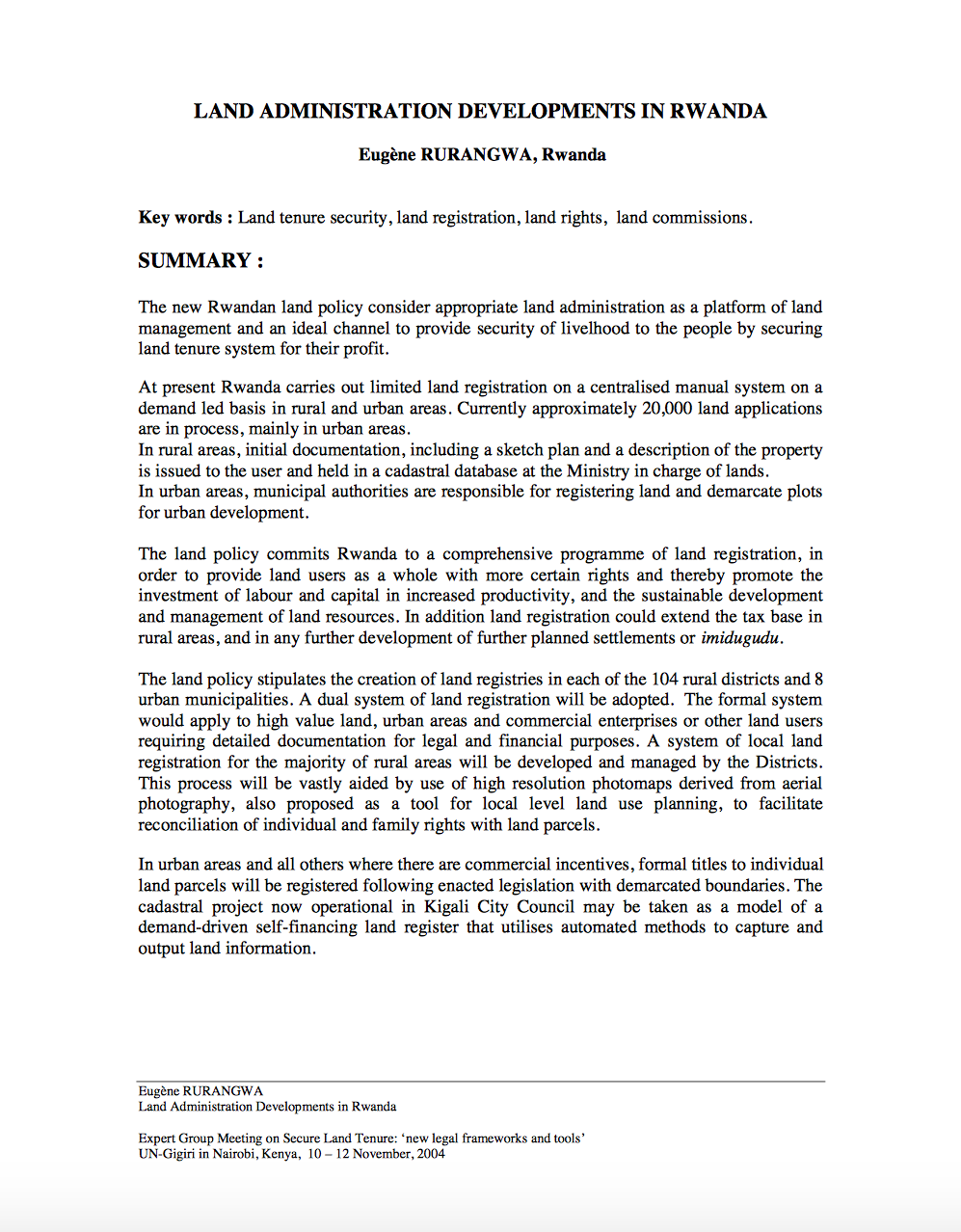Resource information
The new Rwandan land policy consider appropriate land administration as a platform of land management and an ideal channel to provide security of livelhood to the people by securing land tenure system for their profit.
At present Rwanda carries out limited land registration on a centralised manual system on a demand led basis in rural and urban areas. Currently approximately 20,000 land applications are in process, mainly in urban areas.
In rural areas, initial documentation, including a sketch plan and a description of the property is issued to the user and held in a cadastral database at the Ministry in charge of lands.
In urban areas, municipal authorities are responsible for registering land and demarcate plots for urban development.
The land policy commits Rwanda to a comprehensive programme of land registration, in order to provide land users as a whole with more certain rights and thereby promote the investment of labour and capital in increased productivity, and the sustainable development and management of land resources. In addition land registration could extend the tax base in rural areas, and in any further development of further planned settlements or imidugudu.
The land policy stipulates the creation of land registries in each of the 104 rural districts and 8 urban municipalities. A dual system of land registration will be adopted. The formal system would apply to high value land, urban areas and commercial enterprises or other land users requiring detailed documentation for legal and financial purposes. A system of local land registration for the majority of rural areas will be developed and managed by the Districts. This process will be vastly aided by use of high resolution photomaps derived from aerial photography, also proposed as a tool for local level land use planning, to facilitate reconciliation of individual and family rights with land parcels.
In urban areas and all others where there are commercial incentives, formal titles to individual land parcels will be registered following enacted legislation with demarcated boundaries. The cadastral project now operational in Kigali City Council may be taken as a model of a demand-driven self-financing land register that utilises automated methods to capture and output land information.

